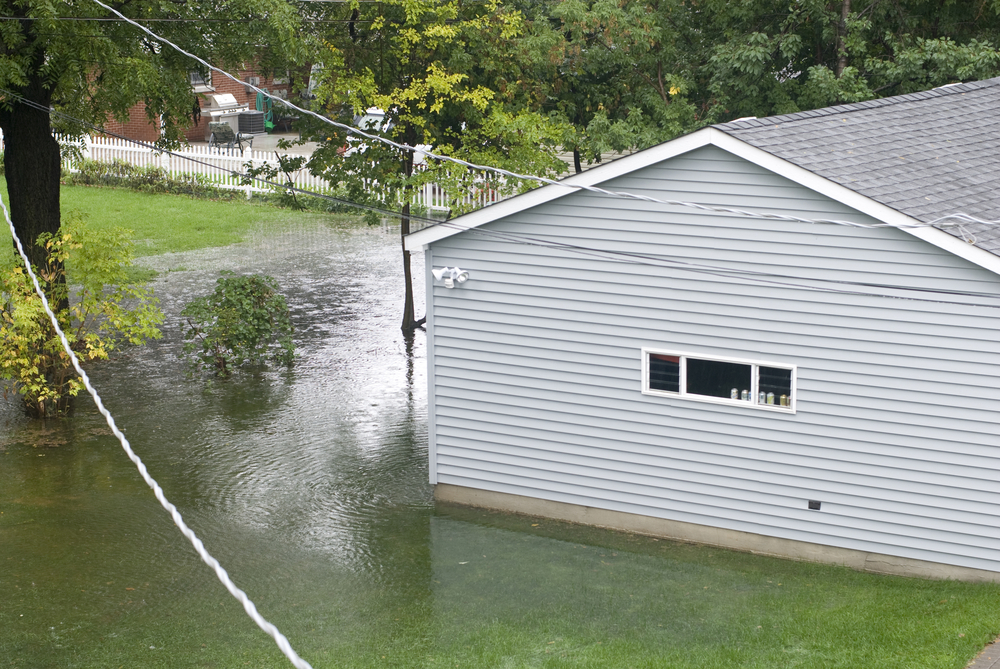If you’re not careful, flooding can lead to disaster for your business or residential septic system. When water levels rise in the ground, it has nowhere to go but up into your home. It can be scary to see wastewater flooding your basement because of excess water. As experts in business and residential septic tank services, Biros Septic & Drain Cleaning want to share a few things you should do after a flood or period of heavy rain to protect your septic system and family.
1. Check for Signs of Damage in and around Your Septic Tank
After a flood, you’ll want to check the area surrounding the drainfield for signs of damage and have a professional inspect your septic tank system before any cleaning services are performed. Signs of potential problems include:
- Foul odors inside or outside the home
- Slow draining sinks and showers
- Gurgling fixtures
- Drainfields that aren’t absorbing the extra moisture
If you notice any of these problems, contact the professionals at Biros Septic immediately. Business or residential septic tank services should only be performed by a professional after they have inspected the system. You should do no repairs or residential septic tank services of any kind to your system unless you are sure it is safe and functional from an expert team of septic service technicians who have been adequately trained in this area.
2. Don’t Compact Soil Over Your Drainfield
Next, you’ll want to be sure you don’t make the potential issues from flooding worse by compacting the soil over your drainfield. Excess moisture from floods or short periods of heavy rain can cause the soil to compress more easily. Compacted soil reduces the drainfield’s ability to treat wastewater and can cause problems with proper drainage. It may lead to flooding around house drains during future rains/floods, ultimately leading to system failure.
For more information on properly maintaining your drainfield and how compacted soil can affect it, check out this video from the EPA:
3. Inspect All Electrical Connections Before Restoring Electricity
The third thing you’ll want to check with your septic system after a flood is the electrical and mechanical devices the system may have. Turn off power at the main breaker panel and ensure there are no downed wires or dirty and wet parts. Before restoring electricity, you should examine all electrical connections to reduce the risk of electric shock that travels through the water. Once the pieces are clean and dry, it’s safe to restore the power.
How to Clean Up Backed Up Wastewater in Your Basement
First, protect yourself with proper personal protective equipment, like gloves, safety goggles, and respirators. Second, minimize the use of water in the household to prevent more water from backing up.
If you’re a homeowner, it’s likely going to be raw sewage that floods your basement. To clean it up, you’ll want to clean the area and disinfect with a chlorine solution thoroughly. Use a half cup of bleach per gallon of water to disinfect and clean up after the flood.
For business owners who dispose of chemicals into their septic tanks, cleaning is a bit more complicated. It depends on the type of chemicals used in your business to determine the best cleaning methods. Follow proper precautions mentioned above to prevent skin, eye, and inhalation contact when around the flooded basement. Then contact your state or EPA for specific clean-up information.
For Business or Residential Septic Tank Services, Contact Biros Septic & Drain Cleaning!
When you’ve had a flood or abnormally heavy rain, there are many things to consider concerning your septic system. Ensure you don’t pump the septic tank or have your septic system cleaned until the water has receded, don’t restore electricity until you’re sure it’s safe, don’t compact the soil, and take proper clean-up precautions. Most importantly, contact a professional business or residential septic tank service provider to inspect the septic system for damage, as well as pump it once the water levels have gone down.
We hope these three points will help you clean up after a natural disaster like this one with minimal hassle and maximum safety. Contact us today and schedule your appointment to protect yourself, your family, and your community.

